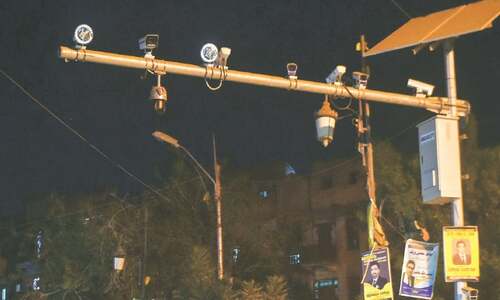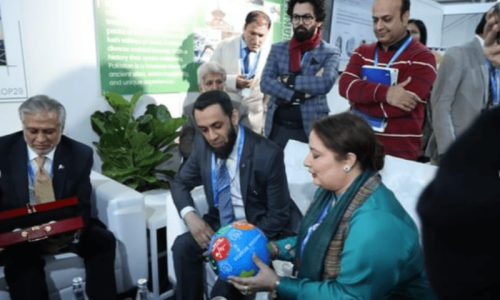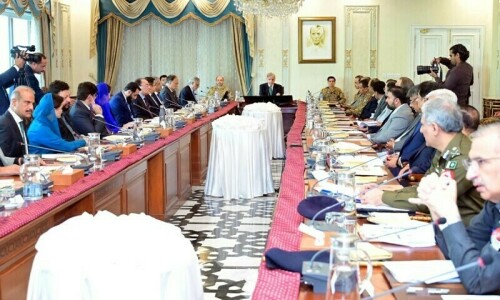KARACHI: Plastic pollution is playing havoc with environment and fast degrading marine and freshwater life in the country, warned experts at an Earth Day event held at Karachi University’s Institute of Environmental Science on Friday.
The World Wide Fund for Nature-Pakistan (WWF-P) had collaborated with KU for the event organised under the Sustainable Fisheries Entrepreneurship Project.
“The large-scale use of single-use plastics in our daily life is devastating our environment. Plastic, in fact, is becoming an environmental catastrophe in both the rural and urban areas,” said KU dean faculty of sciences Tasneem Adam Ali, emphasising the need to promote the concepts of rejecting, reducing, reusing and recycling plastic products.
Professor Omm-e-Haney, the director of the Institute of Environmental Science, KU, said that plastic pollution posed a serious threat to marine life and its ecosystem. The issue of plastic pollution along Pakistan’s coast, it was observed, was a major concern and was worsening due to an inadequate solid waste disposal system in the city.
Muhammad Moazzam Khan, technical adviser (marine fisheries) at WWF-P, said that plastic products, mainly in the form of household utensils and low-quality toys, had been used in this region even prior to 1947.
“From 1965 to 1975, there was a noticeable increase in the use of plastics when it became an integral part of our lives. Today, plastic material constitutes the fourth largest item of import and this sector alone contributes significantly to the national exchequer in different heads,” he told the audience.
The plastic industry, he said, was growing at an annual average of 15 per cent and had surpassed all other industrial sectors.
“Today, the domestic consumption of plastics stands at more than 2.7kg, far less than the international average. Yet, Pakistan is the second largest domestic market for plastics in the [region] after India,” he observed.
Citing an assessment survey undertaken by WWF-Pakistan this year, he revealed that even remote beaches of Balochistan, including Jiwani (which is located near Iran’s border), were not spared of plastic, which made up a large part of the debris accumulated on some of the most fragile beaches of the area.
At the conclusion of the event, a group of students and volunteers carried out a solid waste collection activity to demonstrate the need for changing behaviour towards plastics and educating the general public on this growing issue.
Published in Dawn, April 21st, 2018













































Dear visitor, the comments section is undergoing an overhaul and will return soon.